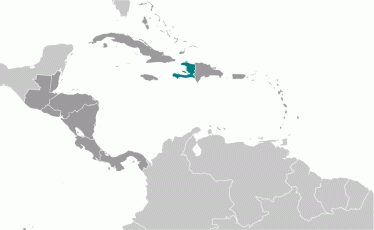ILAB in Haiti

Trade Preferences and Labor Eligibility Requirements under HOPE II
The Haitian Hemispheric Opportunity through Partnership Encouragement Act of 2008 (HOPE II) offers special trade preferences to Haiti in exchange for compliance with specified country-level and producer-specific labor eligibility requirements.
Eligibility
At the country level:
Before becoming eligible for preferential treatment, Haiti had to establish or make continual progress towards establishing: a market based economy; the rule of law, political pluralism and the right to due process, a fair trial, and equal protection under the law; elimination of barriers to US trade and investment; a system to combat bribery and corruption; and protection of internationally recognized worker rights. Further, Haiti cannot engage in activities that undermine United States national security or foreign policy interests; engage in gross violations of internationally recognized human rights; provide support for acts of international terrorism. Further, Haiti must cooperate in international efforts to eliminate human rights violations and terrorist activities.
For continued country eligibility, Haiti must establish or be making continual progress towards establishing the protection of internationally recognized worker rights, a technical assistance program for improving employers' compliance with internationally recognized worker rights and directly related and consistent Haitian law, in which Haitian producers are required to participate to maintain eligibility for preferential treatment, and a Labor Ombudsperson's office. The President certified Haiti's compliance with these requirements on October 16, 2009.
At the producer level:
For producers to remain eligible for preferential treatment, they must comply with core labor standards and with the labor laws of Haiti that directly relate to and are consistent with core labor standards. Every two years, DOL, in consultation with USTR, is responsible for identifying any producers not in compliance with the core labor standards and conforming national law and seeking to provide assistance to such producers to come into compliance. If such efforts to assist fail, the President shall withdraw, suspend or limit those producers' benefits. While this is USTR's fourth report, this is the first reporting period that producers have been identified.
Enforcement
U.S. government officials have been working closely with the HOPE Commission, local and international representatives of workers' organization and civil society groups, Haitian apparel and textile producers, and current buyers and retailers through phone conference calls and meetings in Washington, D.C. and Haiti to facilitate producer compliance with labor-related eligibility requirements under HOPE II. U.S. Government officials made the first producer-specific identifications of noncompliance under the statute in December 2011. Since that time, the U.S. Government has provided significant assistance to noncompliant producers to help them remedy the sources of their noncompliance. Monitoring compliance and provision of assistance are ongoing, both at previously identified factories and across the apparel sector.
Resources
Labor provisions in free trade agreements establish official processes for receiving complaints ("submissions") from interested organizations that believe a trading partner is not fulfilling the labor commitments it made. In the United States, the U.S. Department of Labor, specifically the Monitoring & Enforcement of Trade Agreements Division within ILAB's Office of Trade and Labor Affairs, receives and reviews submissions made under the labor chapters of our trade agreements.
Webinar
On Wednesday, May 9, 2012, the U.S. Department of Labor's Bureau of International Labor Affairs (ILAB) joined the U.S. Department of Commerce's Office of Textile and Apparel (OTEXA) in hosting a webinar on the trade preferences available under HOPE II and the labor eligibility requirements. The ILAB portion of the webinar included a detailed explanation of the process pursuant to HOPE II for determining producer non-compliance, the current status of that process, and ongoing activities leading to the publication in mid-June of a public report required under the statute.
Assessment Reports
The TAICNAR program, implemented by Better Work Haiti, consists of technical assistance to strengthen the legal and administrative structures including reviewing national laws and regulations, raising awareness of workers' rights, and training labor inspectors for improving compliance in the sector. The program also focuses on assessing compliance with core labor standards and national labor law supporting remediation efforts and publicly reporting on the progress of each factory. The most recent synthesis report produced by Better Work Haiti in the framework of the HOPE II legislation, describes the labor compliance performance of factories participating in the TAICNAR program, including changes in compliance with international labor standards and national labor law since the first publication the Biannual report was published on October 19, 2010 under the HOPE II legislation.
